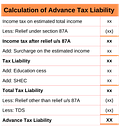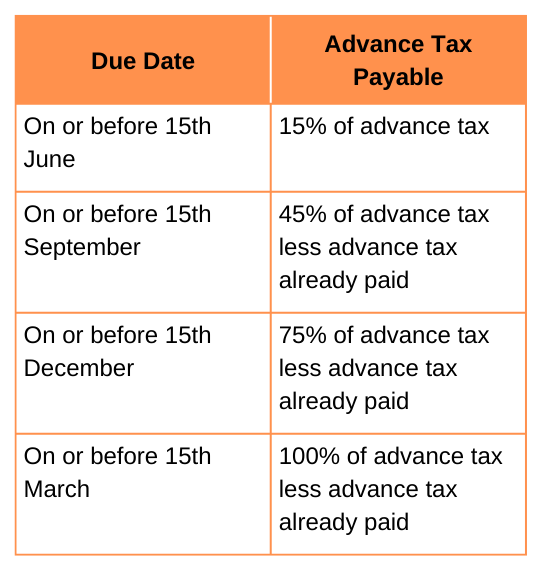Advance Tax - Know the Rules, Due dates and More.
Direct Tax, Indirect Tax, Income Tax, GST, Sales Tax, Lot’s of categories you know.. And there comes one interesting type of tax - it is Advance Tax, as the name depicts, it is related with the advance payment of taxes.
What actually is Advance Tax?
Advance tax is the amount of income tax that is paid much in advance rather than a lump-sum payment at the year-end.
It is often referred to as earn tax, must be paid in instalments by the due dates established by the income tax department.
Advance tax applies to all taxpayers irrespective of the profession, whether you are salaried, freelancer, or businessmen. However, Senior citizens, who are 60 years or more, and do not run a business, are exempt from paying advance tax.
The importance of advance tax
The term "advance tax" refers to income tax that is paid in advance for income received during a specific fiscal year. Typically, tax is due at the time income is earned. The payer must nonetheless estimate their revenue for the entire year in accordance with the tax regulations of advance tax. And the tax is paid at particular intervals depending on this estimation.
Here, it's crucial that the taxpayer estimates their income before figuring out their projected tax to determine whether they owe any advance taxes and how much.
Who is obligated to pay advance tax?
Anyone whose projected tax due for the year is greater than or equivalent to Rs.10,000 is required to pay advance tax, according to section 208 of The Income Tax Act of 1961. As we earlier even said that Senior citizens over 60 without a source of business or profession-related income are exempt from paying advance tax.
How advance tax is calculated?
When to pay the advance tax?
Advance tax is paid in different instalments (as per the due dates) as-
For taxpayers, who have opted for Presumptive Taxation Scheme under section 44AD & 44ADA i.e. Business Income. They are require to pay
After we get to know the due dates, we can relate that there must be levy of interest in case we do not pay advance tax on time.
Pay your advance tax with JJ Tax now.
Let’s understand the levy of interest:
Interest and Late Payment for Advance Tax : According to Section 234B of the Income Tax Act, you will be levied interest at a rate of 1% per month if the advance tax you have paid is less than 90% of the assessed tax. Until the tax is fully paid off, interest is calculated at a rate of 1% per month on the amount that has defaulted. If you don't make a payment by the second or third deadline, you'll be subject to the same interest penalty.
You will be assessed at 1% interest fee under Section 234C of the Income Tax Act if you don't pay your advance tax instalment on time.
Exemption from Payment of Advance Taxes
Elderly people 60 years of age and older are excused from paying the advance tax.
The advance tax is not due from salaried people who fall inside the TDS net. However, advance tax will be charged on any earnings derived from sources including interest, capital gains, rent, and other non-salary income.
One does not need to pay the advance tax if TDS deducted exceeds the tax payable for the year.
Refund for Tax Payment in Advance
If the Income Tax Department determines at the end of the year that you have overpaid your tax, it will return the overpayment. By completing and submitting Form 30, taxpayers can request a refund. They have one year from the conclusion of the assessment year to file the claim.
So guys, keep this all in your mind and ensure you pay advance tax on time. Its good to know things in advance , right.. and that’s possible with us.. yess
Tune in to our podcast, FunnTaxx, from anywhere, whenever you want. Amazon music, Spotify, Jio Saavn & Gaana.
Pay your advance tax with JJ Tax now.







